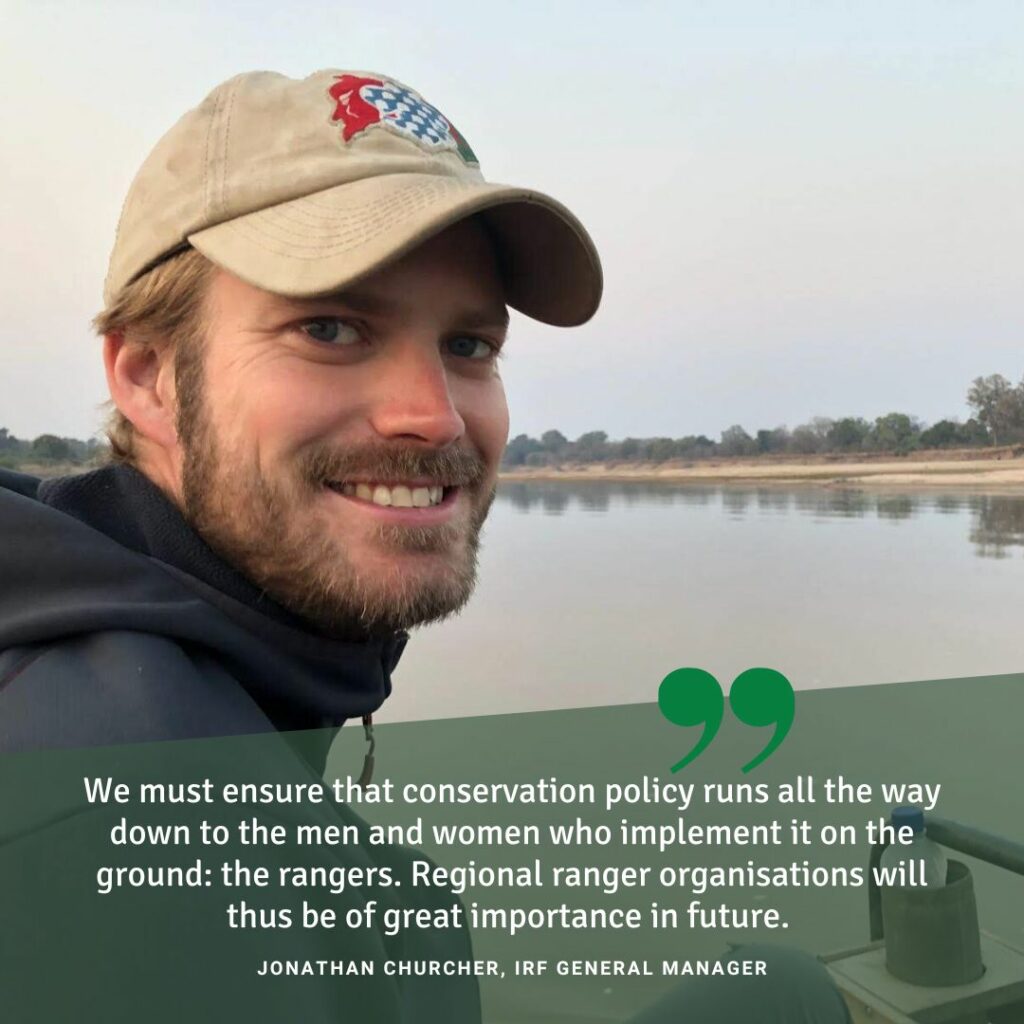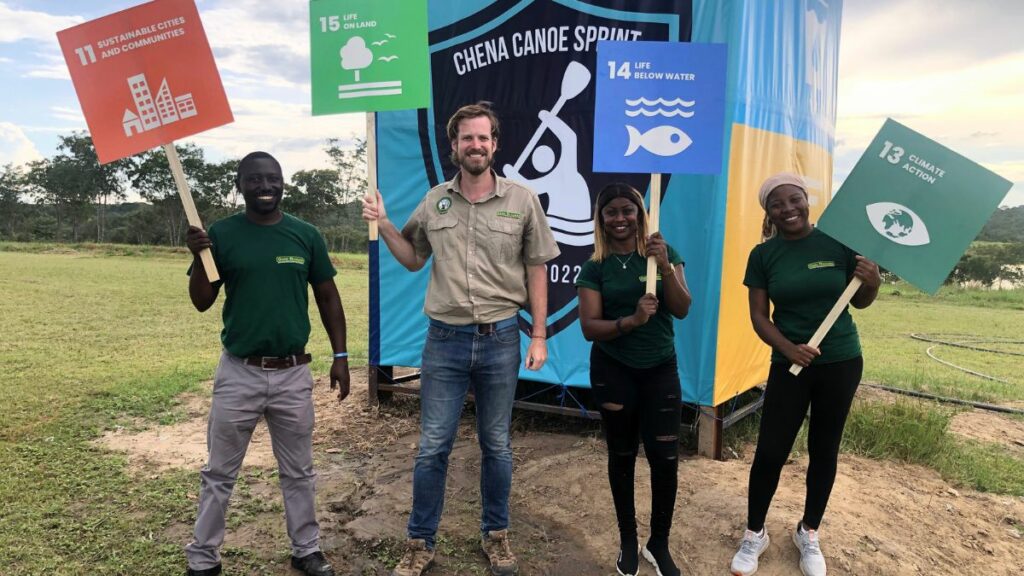For a few weeks now, the International Ranger Federation has been supported by a General Manager: Jonathan Churcher. We have invited him to introduce himself and his new role to you, the European rangers. Find out here how he came to the position and what his focus will be to support rangers worldwide.
Not only to secure regions and their people, but also to protect nature as the basis of life through good training and involving people: That was Jonathan Churcher’s motivation for wanting to switch to the ranger sector after eight years in the military. Which he did by taking a diversion: Following three years in London as a financial consultant ‘helping other people make money, which didn’t match with my values’, as Jon tells us, he got a job in Lusaka, Zambia, as COO of Game Rangers International.
Putting people first while promoting conservation
This local organisation embodies much of what is still central to him. With their mission statement ‘Empowering rangers and local communities to conserve nature’, it is an organisation that puts people first, but also promotes nature conservation. ‘It focuses on how communities can work better, but also on how we can train and support rangers so that they have the tools and knowledge to deal with the complex situations they face in sub-Saharan Africa,’ Jon explains. After rising to CEO there, personal reasons led him back to the UK.

First priority: Meeting all IRF regions to understand their specific ranger issues
‘That’s when I was given the opportunity to apply and then got the job as General Manager for the International Ranger Federation (IRF). I had previously met their President, Chris Galliers, at the African Ranger Congress in Botswana as well as some members of the team and the Thin Green Line Foundation. So I had an idea of the scale and scope of the IRF and its regional bodies as a starting point. As it is quite a complicated system with different needs and requirements, I now want to meet with all regions to understand the specific issues that IRF regions like Europe are facing’ the General Manager explains his first priority in the new role.
“We have to make sure that conservation policy runs all the way down to the rangers”
To advance conservation from a holistic, people-centred perspective, Jon believes in the need to train rangers and work with the communities, but also talk to politicians: ‘Governments run at the very top, but we have to make sure that conservation policy runs all the way down to the men and women who are going to implement this on the ground.’ In his view, the IRF and its structures support this way of thinking. ‘But we need to make sure that this also happens at regional, local and park level to ensure that these policies are implemented and that the rangers get the support they deserve while communities are not being marginalised through conservation programmes.’
“We all take care of two things here: conservation and rangers. And I am quite sure that some people are happy to sponsor and pay for this because we are protecting the earth. But it doesn’t work in isolation.”
This mindset is how he sees the IRF’s positioning, but also how conservation issues are handled from the rangers’ perspective. ‘We all take care of two things here: conservation and rangers. And I am quite sure that some people are happy to sponsor and pay for this because we are protecting the earth. But it doesn’t work in isolation.’
It is the regions where there is a good understanding of the rangers’ concerns
So his first few weeks as IRF General Manager are now about understanding the context of rangers in the world. ‘The Chitwan Declaration gave us a really excellent action plan.’ At the moment he is examining how between the 2019 World Ranger Congress in Chitwan, Nepal, and now that there will be a new World Ranger Congress, rangers’ needs and realities have developed to make sure that this will be summarised in a new action plan for the implementation of long-term improvements for rangers and their work conditions such as job security and the recognition of their role: ‘If we speak with one voice and understand these issues, we can present them in one place.’
“IRF needs to take things, including resources, to the regions. Because that’s where there are really good ideas and understanding of the context in which the rangers work.”
As General Manager, he wants to place a strong focus on the regions: ‘There is so much that can be done at the regional level, so the IRF needs to take things, including resources, to the regions. Because that’s where there are really good ideas and understanding of the context in which the rangers work. So I would like to see the regional level strengthened and represented as much as possible.’
Get in touch with the new IRF General Manager
And for all of you who want to get things moving, we’ll end here with a quote from Jon: ‘I am always available to support the regional associations, please get in contact: generalmanager@internationalrangers.org’
A warm welcome once again from our side, we look forward to a great co-operation!

